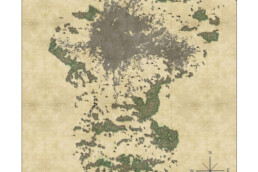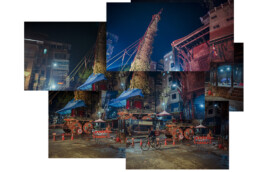The board game uses the power of play to explore how being proactive with disaster preparedness can help our communities thrive in the changing climate context. Some of the questions that fuelled this idea were – can people, who are generally not too interested or proactively looking for knowledge, learn about climate change this way? Will this method reach more people more effectively than the usual methods, some of which feel forced? Through playing this game, people will learn about various adaptation actions to minimise climate disaster impacts on themselves, their households, and the community. As a cooperative game, it demonstrates the interconnectedness of communities and how each person’s and institution’s actions collectively contribute to building the broader community’s resiliency. This multiplayer board game brings people together in a physical setting and enables open conversation about the concepts in the game. Practitioners and trainers can use this board game as an engagement tool in training, workshops and similar settings to guide the conversation and connect it to real-world scenarios and actions. Schools and other educational institutes can also use it to facilitate learning about disasters, preparedness and actions.

The team aimed to have a first prototype of the game by the end of the Field Lab. Following the Field Lab, the project lead will continue working on the game to make it a market-ready product. Although the team cannot share details of the game yet as it is still in development, we are delighted to share its development process within the Field Lab.
Pre-Field Lab:
Climate change is a vast topic so we needed to focus on a theme. We narrowed the theme to anticipatory action and sketched out the broad outline and purpose of the game.

Field Lab – Week 2:
The work started with brainstorming sessions where people threw out a variety of ideas. At the end of week 1, we had some core ideas and one gameplay loop. The gameplay loop structure we applied to this game was: Objective → Challenge+Action → Reward. The first gameplay loop was built around the decision to evacuate or not evacuate when a flood warning is issued. Either decision led to further potential challenges and decisions.

Field Lab – Week 3:
This week, the core board game team formed. Each person has different core skills which was great for the game design. In week 3, we felt stuck and couldn’t progress on the gameplay. Then a teammate said something simple yet profound while we were brainstorming which jumpstarted the creativity – follow the thought even if it is the worst idea, don’t stop just because you feel it is rubbish. This was a pivotal moment. We aimed to get a zero draft by week 3 Friday so that we could do the first game test with the minimum number of players. The main purpose was to test the logic. The first test was great! The feedback was mostly positive. They loved that it was a cooperative game and the interdependency between institutional game characters and community characters. The main feedback was centred around the gains, losses and costs.

Field Lab – Week 4:
We refined the game further using the feedback and lessons from the first test. With key changes to the gain and loss logic, we successfully created a first draft. We did a second test with 6 players. Test round 2 was even better. There was useful feedback from this process mainly around balancing the numbers, some logic errors and providing stronger incentives for choices, among other points. Another key comment was to broaden the scope in terms of disasters, types of characters and actions. All the feedback will be pivotal for the next design stage as we proceed further. By the final Friday, the day of the Art and Science Exhibit, we had our first prototype. We worked with a Nepalese NGO called Bignaharta to print the prototype for the exhibit. One of Bignaharta’s landslide adaptation projects generated agrowaste that they use to create local paper and paper products. They printed all the board game materials on this paper.

Next steps:
– Work with a professional game designer to refine the game and build it further
– Build a companion website to provide further information on anticipatory actions
– Fundraise
Please reach out to Sunayana Sen ([email protected]) if you have any questions or feedback on this game.
We are grateful for all the enthusiasm, participation, feedback, engagement and positive energy from Aagya Dhungana, Anna Ziya Geerling, Aryaa Rajouria, Bibhor Bista, Bhola Saha, Chi Huyen (Shachi) Truong, Christina Justice, Giulia Brutti, Giuseppe Molinario, Indraneel Kasmalkar, Major Zeng, Namgay Dechen, Nitish Barole, Rajee Tamrakar, Sanam Aksha, Sherene Tan, Simone Curtis, Soumyadeep Roy, Sweata Sijapati, Tenzin Yangkey, Tümüzo Katiry and other UR Field Lab ‘24 participants.



